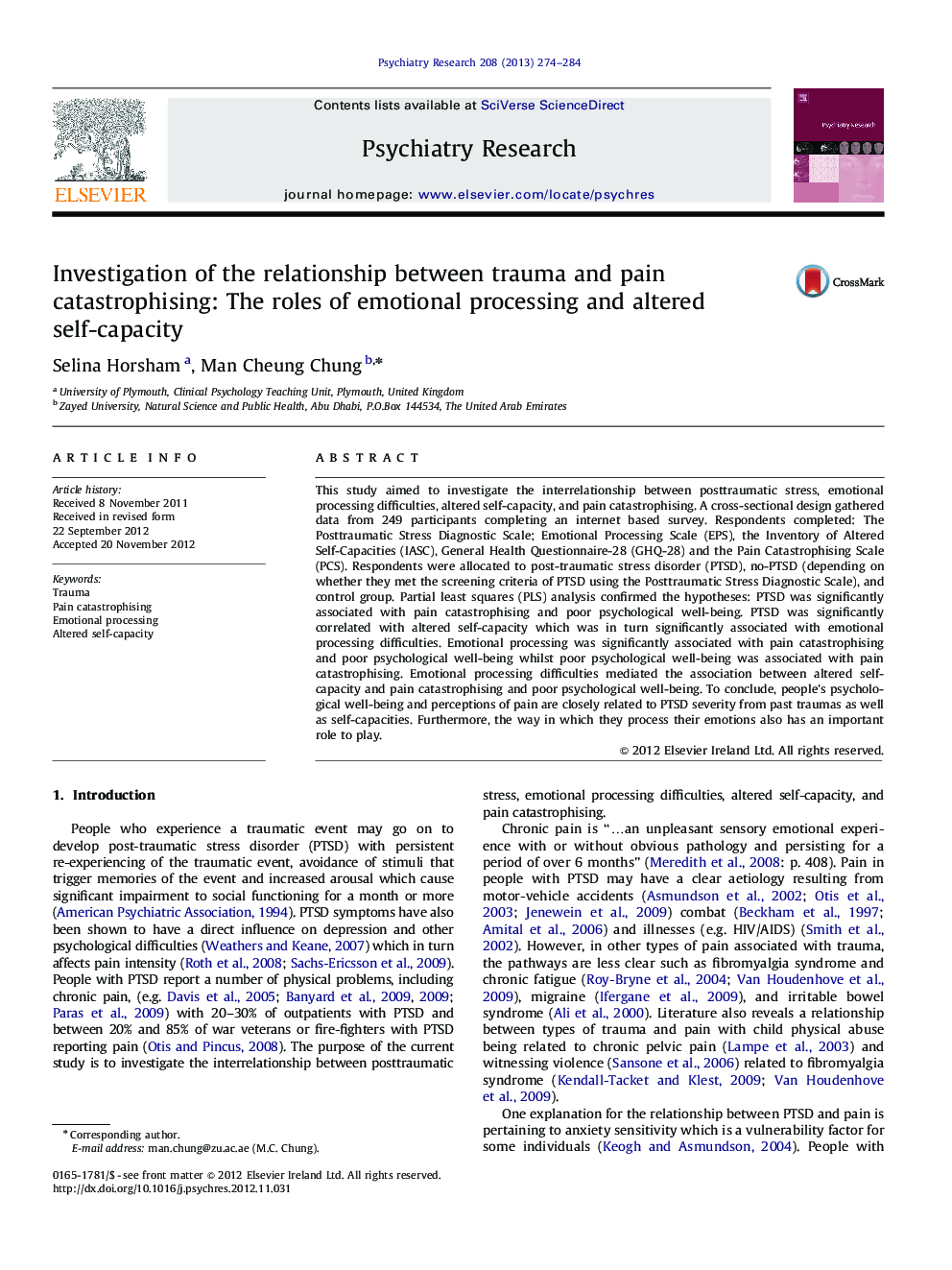| Article ID | Journal | Published Year | Pages | File Type |
|---|---|---|---|---|
| 332428 | Psychiatry Research | 2013 | 11 Pages |
This study aimed to investigate the interrelationship between posttraumatic stress, emotional processing difficulties, altered self-capacity, and pain catastrophising. A cross-sectional design gathered data from 249 participants completing an internet based survey. Respondents completed: The Posttraumatic Stress Diagnostic Scale; Emotional Processing Scale (EPS), the Inventory of Altered Self-Capacities (IASC), General Health Questionnaire-28 (GHQ-28) and the Pain Catastrophising Scale (PCS). Respondents were allocated to post-traumatic stress disorder (PTSD), no-PTSD (depending on whether they met the screening criteria of PTSD using the Posttraumatic Stress Diagnostic Scale), and control group. Partial least squares (PLS) analysis confirmed the hypotheses: PTSD was significantly associated with pain catastrophising and poor psychological well-being. PTSD was significantly correlated with altered self-capacity which was in turn significantly associated with emotional processing difficulties. Emotional processing was significantly associated with pain catastrophising and poor psychological well-being whilst poor psychological well-being was associated with pain catastrophising. Emotional processing difficulties mediated the association between altered self-capacity and pain catastrophising and poor psychological well-being. To conclude, people’s psychological well-being and perceptions of pain are closely related to PTSD severity from past traumas as well as self-capacities. Furthermore, the way in which they process their emotions also has an important role to play.
